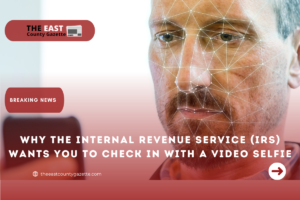Taxpayers will soon be required to utilize facial recognition technology in order to access their online accounts, according to the IRS. Users will be required to submit a mix of documents, including a video selfie, to ID.me, a third-party company, in order to authenticate their identification.
The proposal was brought to the public’s knowledge last week by the information security blog Krebs on Security.

According to CNBC, the IRS explained in a statement that the additional authentication will not be required in order to file taxes or make a payment.
However, beginning in summer 2022, taxpayers will be required to use the service in order to view their payment history, create a payment plan, and use the Child Tax Credit Portal.
Additional services will also shift to ID.me “over the coming year,” according to a press release issued by the agency in November 2021 announcing the move.
Users will need to create an ID.me profile and upload a photo of a government-issued photo ID, such as a driver’s license or passport, in order to access their online accounts after the changes take effect.
Using a mobile device or webcam, they can then record a video selfie, which will be used by the ID.me system to verify the user’s identity later on.
If the verification process fails, customers will be requested to participate in a recorded video chat with an ID.me agent to complete the process manually.
Read More: US Places 8,500 Troops on Alert Amid Rising Tensions with Russia
According to Brian Krebs, the blogger who runs the Krebs on Security site, the process can be difficult even for those who are technically adept.
Krebs described his experience with the ID.me system in his blog post, including having to re-enter his personal information numerous times before being invited to join a video chat, for which he was told the wait time would be more than three hours.
The Internal Revenue Service is not the first federal entity to utilize ID.me. Some states, such as Colorado and New York, began using the service in 2021 to identify those who were eligible for unemployment compensation.
Due to access concerns, some candidates have apparently been subjected to months-long wait times.
Government agencies are attempting to strengthen security in areas such as unemployment and tax filings in order to slow the growth of fraudulent activity.
Privacy advocates, on the other hand, are concerned that the IRS is coercing citizens into providing personal information to a private corporation.
“This announcement signals one of the largest expansions of facial recognition technology in the United States, and there is no doubt that it will harm people’s privacy,” Caitlin Seeley George, campaign director at advocacy nonprofit Fight For the Future, told Axios.
“This announcement signals one of the largest expansions of facial recognition technology in the United States,” she added.
ID.me, on the other hand, claims that its software is distinct from facial recognition tools, which comb through millions of photographs in search of a match.
As explained in a published white paper, the business refers to the software as “face match,” claiming that it is more similar to the method your phone employs to identify you rather than facial recognition technology, which can distinguish a single face in a crowd.
Some of these programs, such as the one employed by Clearview AI, are also employed by government agencies, and they have drawn the ire of privacy experts.
According to the ID.me website, the company does not sell or trade biometric data with third parties. However, they do share your information with a few “trusted companies,” and even if you cancel your account, the corporation can retain your information for an extra seven and a half years after that.
